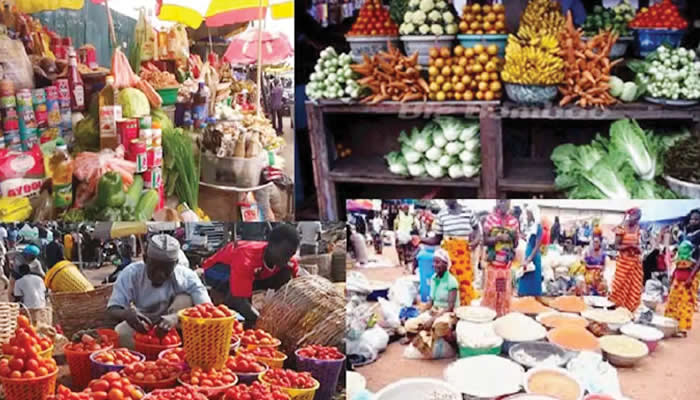As Christmas draws near, many Nigerian families are grappling with rising food prices due to inflation. With staple foods like rice, beans, yam, and palm oil becoming more expensive, preparing traditional holiday meals can be a financial challenge.
However, there are numerous practical strategies that can help families manage these rising costs without sacrificing the festive spirit. Here are tips to help you create a memorable and affordable Christmas feast:
Join our WhatsApp Channel1. Plan Your Menu Carefully
The key to reducing food costs is having a well-thought-out menu. Focus on dishes that use affordable and locally available ingredients. Instead of expensive meats, opt for chicken, beans, or other protein-rich alternatives that are easier on the wallet. Choose simple, hearty meals that can feed a large group without breaking the bank.
2. Buy in Bulk
Purchasing items in bulk is a smart way to save on food costs. When you buy larger quantities of staple foods like rice, beans, and flour, the price per unit often drops. Pooling resources with neighbours or family members to buy in bulk can also help spread out the cost, making it more affordable for everyone.
3. Embrace Freezer-Friendly Meals
Freezing meals is a great way to save time and money. Buy meats or vegetables in bulk and freeze portions for later use. This not only reduces food waste but also allows you to take advantage of discounts on larger quantities of food, ensuring that you have the ingredients needed for your Christmas meal at a lower price.
4. Use Leftovers Creatively
Get creative with your leftovers. If you have extra rice, beans, or vegetables, turn them into new dishes for the following days. Leftovers can be repurposed into soups, stews, or casseroles, making them a valuable resource during the holiday season. This reduces food waste and maximizes the use of what you already have.
5. Consider Plant-Based Meals
Meat is often one of the most expensive components of a Christmas feast. Consider adding more plant-based dishes to your menu, such as vegetable stews or legumes like beans and lentils. These meals are both affordable and nutritious, and they can be a hit with your guests, offering variety and flavour without the high cost.
READ ALSO: Inflation: How Rising Food Prices Are Forcing Nigerians To Choose Between Meals Or Survival
6. Take Advantage of Christmas Discounts and Promotions
Many stores and markets offer discounts or special promotions during the Christmas season. Look out for sales on food items like rice, cooking oils, and meat. Stock up on non-perishable goods before the prices rise, and make sure to compare prices across different stores to find the best deals.
7. Join Community Buying Groups
Community buying groups are a great way to share the cost of bulk items. Pool resources with friends, neighbours, or coworkers to purchase large quantities of food at a lower price. By buying together, you can split the cost of goods like rice, palm oil, and meats, making food prices more affordable for everyone involved.
8. Embrace Food Sharing and Social Support
In many Nigerian communities, food-sharing is a long-standing tradition. With the rising cost of food, this practice is even more important. Organise food-sharing groups with family, neighbours, or friends. Share the cost of ingredients and work together to prepare meals, reducing individual expenses and ensuring everyone can enjoy the festive season. Social media platforms have also become a hub for sharing budget-friendly recipe ideas, where influencers post creative and affordable meal hacks.
Although the rising cost of food presents a significant challenge this Christmas, it doesn’t mean you have to forgo the festive spirit. By carefully planning your meals, buying in bulk, growing your own ingredients, and tapping into community support, you can enjoy a hearty and affordable Christmas feast.
















